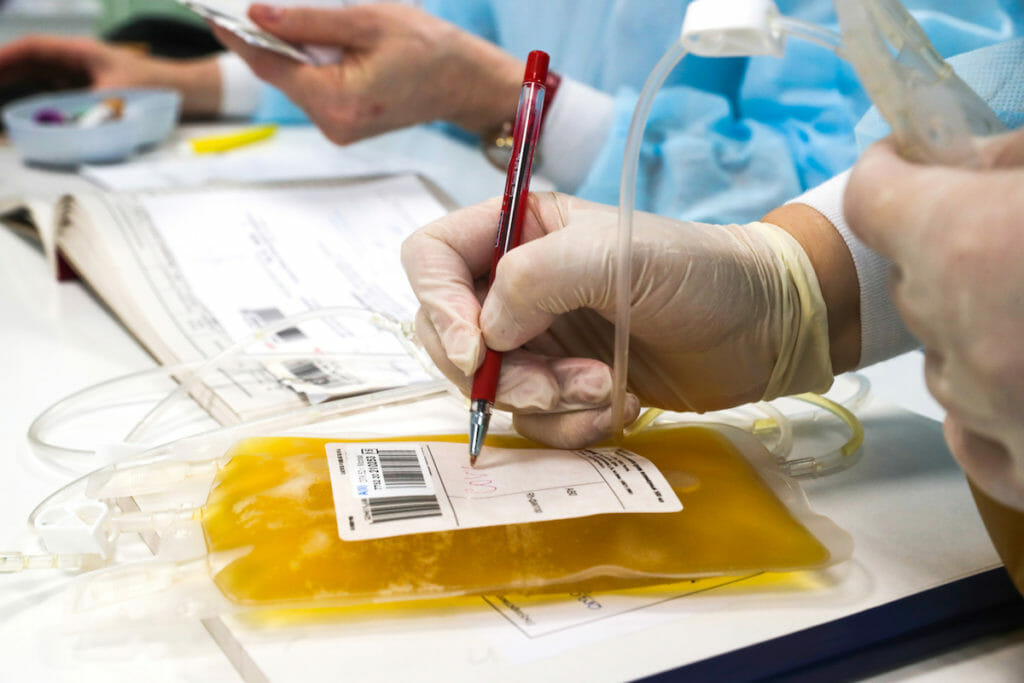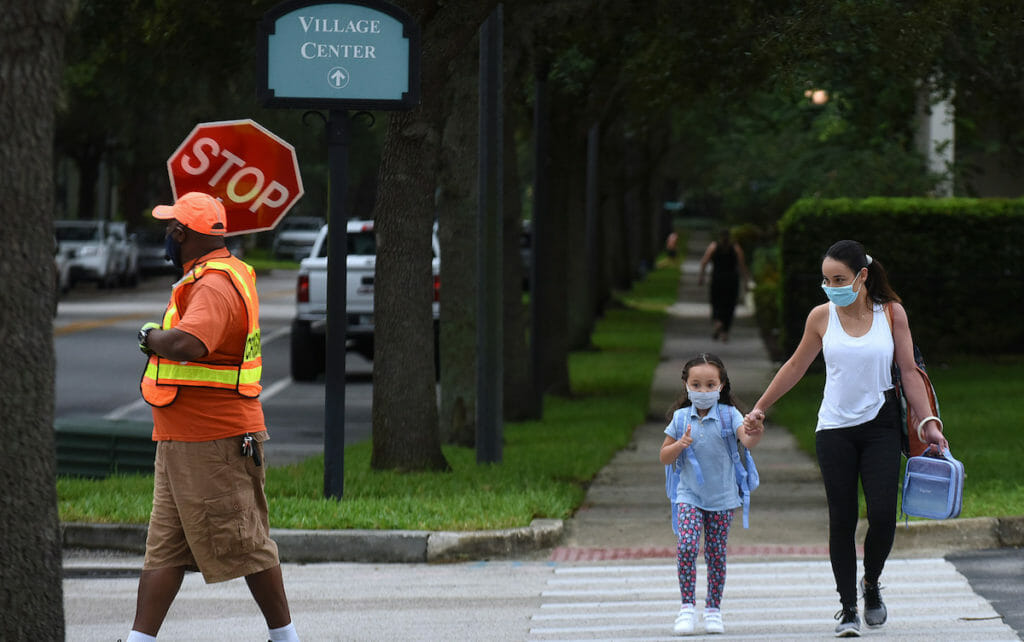Numbers can be numbing. Maybe that’s why they’re called numb-ers. How do you wrap your head around seven million COVID-19 cases in the US? And 200,000 deaths? And now one million deaths worldwide?
Comparisons help. Seven million cases is like having everyone in Chicago and Los Angeles infected. The US toll of more than 200,000 deaths has us heading toward the 291,000 Americans killed in action in World War II.
It’s not fruitful to dwell on the past or wallow in the present, but take heart, friends. Forward-looking people are doing just that: looking forward and planning for a post-pandemic era that will be better, brighter, smarter. First we have to get through the fall and winter. Masks. Hand-washing. Social distancing. Testing and tracing. Mutual respect. It seems so simple. Why is it not?
This week’s Haymarket Media Coronavirus Briefing is 1,508 words and will take you seven minutes to read.
The metrics
As far as what we know and can do about this disease, we are in a period of “stormy adolescence”—beyond infancy but not yet grown up, says National Institutes of Health director Francis Collins, who has managed to maintain a spectacularly low profile while saying the most sensible things.
- Pop Quiz: Over the summer, the incidence of COVID-19 in the US was highest among people in what age group? Go to the head of the class if you said 20-29. According to the CDC, young adults in their 20s accounted for more than 20% of all confirmed COVID-19 cases from June to August. In the South, increases in positive tests among people in their 20s and 30s occurred 4 to 15 days before increases among seniors 60 and up, suggesting that young adults are a source (of community transmission) to be reckoned with.
- According to an analysis of 97 studies, this is a pandemic of stealth as well as health: 40% of healthcare workers who tested positive for COVID-19 showed no symptoms at the time, while half of those who tested positive were nurses, reports Alicia Lasek in McKnight’s Long-Term Care News. Of those testing positive, 1 in 20 developed severe complications and 1 in 200 died.
- The nation’s first COVID-related criminal charges against nursing home operators have been filed in Massachusetts, report James Berklan and Danielle Brown in McKnight’s Long-Term Care News. A grand jury indicted the former medical director and former superintendent of a veteran’s home where 76 residents died. Among the allegations: that merging two dementia units put COVID-positive residents in proximity to the uninfected. The operators also face a class-action civil lawsuit. Expect more such headlines, a legal expert predicts.
The takeaway
What’s trending? Week after week, your guess is as good as mine.

The medicine
Waiting for a vaccine is testing this country’s woefully limited capacity for patience and forbearance.
- Remember convalescent plasma? Two trials investigating the use of plasma from patients who have recovered from COVID-19 are being expanded, reports MPR’s Brian Park. The aforementioned Francis Collins notes that “the evidence on convalescent plasma is promising but incomplete.” While the world waits for an effective vaccine, he says it is vital to expand treatment options for the sickest patients.
- The pandemic is changing the way clinical trials for cancer drugs are being conducted, reports Agata Boxe in Cancer Therapy Advisor. Some of the changes—greater use of telemedicine, home delivery of meds, allowing follow-up visits at nearby locations—are likely to continue post-pandemic.
- One problem with telehealth, as noted by Susan Moench in Infectious Disease Advisor: Hispanic and non-Hispanic Black outpatients with cancer are less likely than non-Hispanic white patients to take part in telehealth visits and more likely to become infected with COVID-19, according to a study at cancer centers in New York and Boston. Minority patients have experienced “a disproportionate burden of cancer care disruptions” due to the pandemic.
- Let’s not forget that when all is said and done, vaccines against this virus will have been developed with, yes, warp speed. In the meantime, drugs with four- and five-syllable names (dexamethasone, remdesivir) are emerging as go-to treatments that can help keep people out of the ICU and curb the most wicked of the disease’s complications.
The Takeaway
The nearly one million people around the world who have died from COVID-19 have left a valuable legacy. “Through desperate efforts to save their lives, scientists now better understand how to treat and prevent the disease — and millions of others may survive.”

The media and the messages
Maybe one good outcome of the pandemic will be a greater capacity to talk to each other, rather than at each other.
- The pandemic has given rise to a SWAT-team mentality among PR firms, who have replaced “heavy and ponderous” communications with “smart brevity,” Steve Barrett writes in PRWeek. “In-house teams have pivoted and upped their game during a febrile period of coronavirus, racial injustice and a brutally divisive presidential election campaign.”
- MM+M is launching a weekly video series, My 2020. The editors will catch up with leaders in healthcare marketing to explore how they are coping with the unprecedented challenges of this year.
- How do you maintain a strong and vibrant company culture when face-to-face interaction among staff is limited? C&IT Editor Calum Di Lieto searches for answers in a video interview with the CEO and COO of Venues and Events International.
- Can the CDC recover its mojo? This doctor has serious doubts but hopes the agency can regain its damaged credibility.
The Takeaway
With daring headlines on its website like “Pandemics can be stressful,” the CDC faces an uphill climb.

The madness
Stay home. Go to work. Stay home. Go to school. Stay home. Any wonder that we’re whiplashed?
- In the UK, where coronavirus cases are surging again, businesses are doing a U-turn, telling folks to keep working from home after welcoming them back to the office in a measured way. People Management’s Jenny Roper interviewed six HR directors to sort out the inevitable confusion. A new law includes fines of up to £10,000 for employers who knowingly allow or force staff to come to work when they should be self-isolating.
- Google CEO Sundar Pichai envisions the future of work as a hybrid model, in which people will primarily work remotely but gather at the office from time to time for on-sites. “We firmly believe that in-person, being together, having that sense of community, is super important for whenever you have to solve hard problems, you have to create something new.”
- In that same spirit, doctors who are helping their colleagues cope with stress and burnout suggest holding an “appreciative inquiry,” where staff members gather to focus on what is working well and how they can do more of it. “There is a delicate balance between sharing misery and looking at how you can proactively address things together,” Dr. Carol Bernstein tells Renal & Urology News.
- The economic damage wrought by the pandemic is making it harder for older people, especially women, to plan and save for retirement, reports Kimberly Bonvissuto in McKnight’s Senior Living. Women earn less than men throughout their careers, then live longer in retirement—not an equation for equity.
The Takeaway
Schools and businesses will be taking one step forward, one step back for a good while longer. It’s not a happy dance.
The rest
- Corona—the beer, not the virus—is partnering with tour marketer Thrillophilia to resuscitate the hotel and travel industry in India, reports Campaign India. The “Rediscover Paradise” campaign is part of a global effort by Corona to pre-purchase more than 14,000 rooms at independently run facilities that have been slammed by the pandemic. The rooms are offered at discounts to travelers who can book now and travel later, when they feel it’s safe.
- The dramatic reduction in noise pollution during the pandemic shutdown in San Francisco—traffic noise has reverted to 1950s levels—has given rise to an unexpectedly salutary effect: The songs of white-crowned male sparrows became softer, their mating calls more alluring.
- Check out the best Zoom ad.
- As a boy of six in Philadelphia, Quentin Wiest survived the 1918 flu pandemic. In 2020, at age 107, he succumbed to the coronavirus. The man bowled two 200 games when he was 98 and played golf beyond age 100.
Stuff you can do
- Get a flu shot.
- Tell your family, friends, neighbors, and colleagues to get their flu shots.
- Vote.
- Tell your family, friends, neighbors and colleagues to vote.
- Celebrate Banned Books Week by reading one of the 100 most banned and challenged books of the past decade.
Music for the season
- Listen to the birds.
- Listen to the 10 Best Autumn Songs, as chosen by Billboard.
- Listen to Autumn Leaves by Roger Williams. If you like the words and need a soothing sound to ease your PSL (pandemic stress level), tune in to Nat King Cole.
We’ll be back on Wednesday, October 7. Take good care.
“Lord save us all from a hope tree that has lost the faculty of putting out blossoms.”
—Mark Twain








